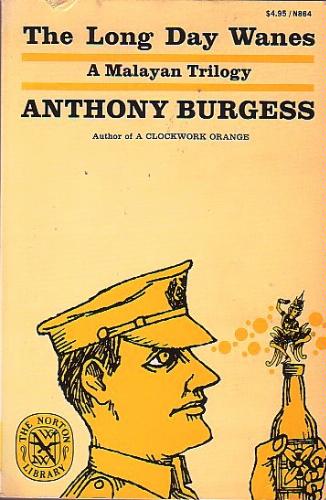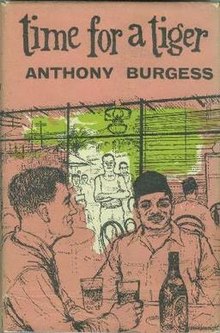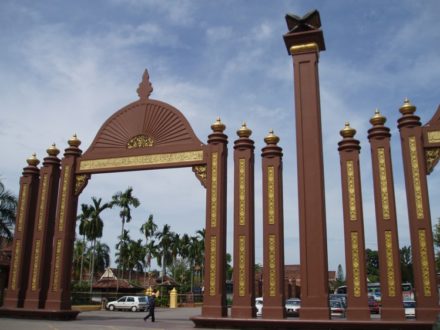I read multiple Anthony Burgess novels when I was in high school, and acquired his Malayan trilogy, his first three novels, bundled in the US as The Long Day Wanes then (and have carried it with me through many moves before finally reading it!). All three novels are set before Malaya’s independence in 1957. Time for a Tiger was published before it (1956), The Enemy in the Blanket (1958) and Beds in the East (1959) after it.

Burgess was posted by the Colonial Service, first at the Malay College at Kuala Kangsar, then at the Malay Teachers’ Training College in Kota Bharu. (After Malaya’s independence and a brief return to England, he took up a position in Brunei (a British protectorate until 1984).

Unwisely IMO, Burgess began Time for a Tiger with a tall, alcoholic sponger and police lieutenant, Nabby Adams, but there are many other characters, including the presumed version of the author, Victor Crabbe, Sikhs, Tamils, Chinese, and Malays. There is a Malay homosexual (or transgender), the Crabbe’s undutiful houseboy Ibrahim bin Mohamed Salleh who had been forced to marry a woman when he was 17 (the path to Muslim manhood). “The marriage had not been a success, naturally. Ibrahim had cried, resisting the rites of the wedding night” (98). He ran away. His wife discovered him and he fled again and now she knew he was at the Crabbes.” “He had pleaded, he had prayed, he had begged her to return to Johore” (98), to no avail. He finds a gay Brit whose lover has just left him and signs on to works — and presumably share the bed — of a new master.
I like best the middle volume, though it has no homosexual characters or overtones. Crabbe is concerned he will be arrested for aiding the rebels in the jungle, since his Chinese cook has been diverting food to feed his nephew’s band of communist guerillas. Burgess manages an even more ironic ending for the second volume. One could say that Victor falls up in both.

(Sultan Ismail Petra Arch at Kota Bharu, Burgess’s second Malaya posting, photo by Tony Jones)
In the third, he is second-in-command, then first (headmaster) in a school in the northeast (on the China Sea). Beds in the East is the most polyvocal of the novels, though all have the attitudes of a range of characters belonging to groups hostile to each other. The Malays are expecting a “Malaya for the Malays,” (expatriating the colonists and expropriating Chinese and Tamil businesses) and Victor is training a replacement to take over when the country becomes independent.
Victor encourages and tries to help the son of a Chinese barkeeper, Robert Loo, who composes western music (with less Malay inspirations than Victor or the cultural officials would prefer). Muslim and some Chinese characters assume that Robert is Victor’s catamite, though both are thoroughly heterosexual. Robert has his first sexual intercourse in Victor’s bed, but while Victor is gone, with the dark-skinned Rosemary. The gossip has no basis, but shows that such a relationship is not only thinkable, but the first and only one occurring to Malay Muslims and Chinese to explain an older man trying to help a younger one.
© 1 August 2018

